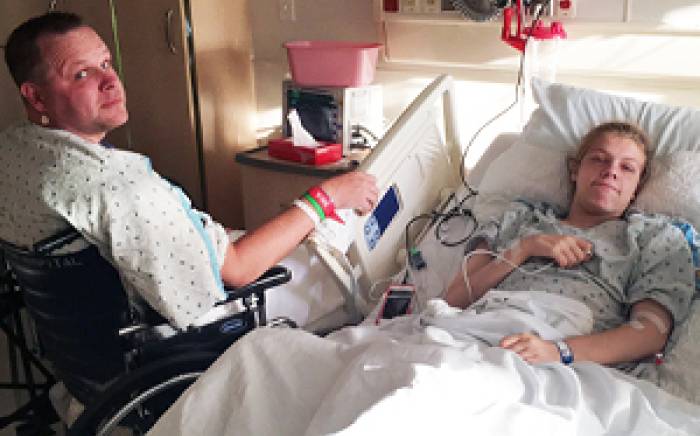 Before Cooper Hendrix was even born, doctors detected a defect that would affect the health of his kidneys. So when his kidneys started to fail during his first few years of life, Cooper’s parents, Tim and Gillian, were ready to take the necessary action. On October 25, 2011, Gillian gave her then 4-year-old son one of her kidneys.
Before Cooper Hendrix was even born, doctors detected a defect that would affect the health of his kidneys. So when his kidneys started to fail during his first few years of life, Cooper’s parents, Tim and Gillian, were ready to take the necessary action. On October 25, 2011, Gillian gave her then 4-year-old son one of her kidneys.
The procedure went well, but their journey has not been without its obstacles. In the first year post-transplant, Cooper had to fight off viral infections and complications, such as high blood pressure, which meant a few extra hospital stays. The Hendrix family, including Cooper’s younger brother Stratten, has made many trips from their home in Blue Eye, Missouri to St. Louis Children’s Hospital for follow-up care.
“It’s our normal,” Gillian says. “We feel comfortable at the hospital. To us, it isn’t a scary place but one where we know Cooper will get better.”
The Hendrixes have learned to take things as they come and to count the blessings that happen along the way. Now, they rejoice in the fact that Cooper has been able to stay out of the hospital the entire second year after the transplant. This gives Tim and Gillian the breathing room to focus on giving Cooper the childhood he deserves.
Cooper loves to play outside with Stratten and their extensive collection of toy cars. He also enjoys figuring out how the family’s iPad works.
“We know that a minor playground accident is more serious for Cooper than it would be for other kids. But we really can’t worry about that,” Gillian says. “I always remember one of his doctors telling us to treat him just like any other kid.”
“A parent with a seriously ill child has more than enough to worry about, so being able to check your child’s medical care off the list of worries is relief of epic proportions,” Tim said. “Each time we got off the elevator and walked across the bridge to Children’s Hospital, I knew without a shadow of a doubt that my son would be in very capable hands.”
Tim, a veteran firefighter, went on to say that because of his experience with the caregivers at Children’s Hospital, he approaches his work differently. “It’s no longer just a job,” he said. “Now, when I turn on the lights and siren, and we go help someone in need, I want my mission to mirror that of Children’s. I want to make sure I do everything I can to do what’s right for you and your kids.”



